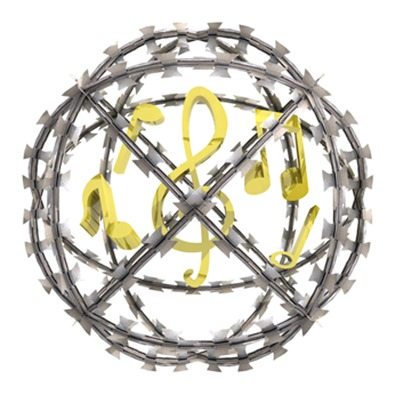Originally posted on November 6, 2014 @ 11:57 AM
The Sound of Safety
 When people in safety see the word ‘sound’ they tend to think of noise hazards and hearing protection. Whilst these are important there are many other ways of thinking about ‘noise’ and ‘sound’ that are not associated with physical hazards and are much more dangerous. An discussion of the social psychology of sound may be helpful.
When people in safety see the word ‘sound’ they tend to think of noise hazards and hearing protection. Whilst these are important there are many other ways of thinking about ‘noise’ and ‘sound’ that are not associated with physical hazards and are much more dangerous. An discussion of the social psychology of sound may be helpful.
In 1964 Simon and Garfunkel released ‘Sounds of Silence’, a song that would become an anthem somewhat like Dylan’s ‘The Times They’re a Changin’. The song declares that people are often silent about important things and noisy about petty things.
The art of leading and discerning in risk is most often observed in knowing when to be silent and what to be silent about. Norretranders calls this an awareness of ‘exformation’ and ‘information’. Whilst safety tends to think that safety is about telling, the real key to leading in safety is by listening. Effective leading and listening must know what to listen for and what to observe when to ask and when to be silent. If safety is to become more than just policing PPE, paperwork and regulation, it must learn the message of ‘The Sounds of Silence’.
In order to learn, one has to know when to be silent and listen. In order to lead one has to know when to follow. One of the first skills of effective leading is strategic silence.
I met this week with three executives of a very large company who wanted to think strategically about culture change. All had ‘come up through the ranks’ in engineering but I was surprised when the GM decided to lecture me on his definition on culture. He was convinced that he knew about culture, he had it well defined (the sum of all behaviours in the organization) and told me it was an immovable definition. Once he had his say I asked a few questions about his definition showing that it omitted much of what culture was about. Soon he realized he knew very little about culture and admitted he had no experience or background in social sciences. I began to wonder I why had been asked to the meeting. It’s amazing how many people in safety think they know about culture and can measure culture yet have no expertise in the matter. There are plenty of indexes, books and surveys about on safety culture that neither define culture or consider culture as sophisticated and complex. The last 5 books I purchased on safety culture on leadership were on neither, all defined safety leadership as the management of systems and regulation.
In the same year as ‘Sounds of Silence’ Frankie Valli and the Four Seasons released ‘Silence is Golden’, later to become a ‘hit’ by The Tremeloes. The song is about ‘seeing’ (perception) and snake oil. One line goes: ‘talk is cheap, people follow like sheep’. One of the critical skills of leading in communication is understanding the nature of framing and priming. When one understands how communication runs at several levels (in the conscious and unconscious) then one knows that ‘talk matters’.
Those who are not discerning about the fundamental messages of safety think words are ‘just semantics’. This is why the lovers of zero don’t get it, there is no leadership in binary opposition. There is no leadership unless one understands the power of semiotics. It is astounding that the Queensland Government could brand a leadership program with the language of ‘Zero’. Combining the language of leading with the language of absolutes is a contradiction, demonstrating that the advocates of this Program have little knowledge of the damage of speaking in absolutes and how poor a model absolutes set for the language of leading. The language of absolutes ‘primes’ ‘leaders’ not to listen, puts the focus on perfection, creates a binary understanding of ‘targets’, set satisfaction on lower order goals, contradicts all models of learning and shifts attention to numerics. There can be no leadership come from the discourse of zero (see: Binary Discipline and the Easy Road of Consequence).
The secret to leading in safety and the ‘noise’ of ‘zero’ is not to speak it. There are many words we chose not to say, many words we know are unhelpful, just add ‘zero’ to that list. If you want to lead, you don’t need to speak in absolutes. There is no motivation in absolutes or perfectionism.
On a final note it might be good to think about the word ‘safety’ itself. I think sometimes the word ‘safety’ get’s so abused and overstated that it becomes the ‘killjoy’ word. Unless of course you are a ‘zero harm advisor’ and you have totally killed off the word, rendering it useless. Unfortunately, the word ‘safety’ gets used all the time to justify organizational and political compliance when it has nothing to do with safety. People just throw the ‘safety’ tag into the mix and somehow the sheep will be compliant. How about going on a conversation walk sometime, to learn how people manage their work and risk and try not to use the word ‘safety’. See if you can do it.



Do you have any thoughts? Please share them below